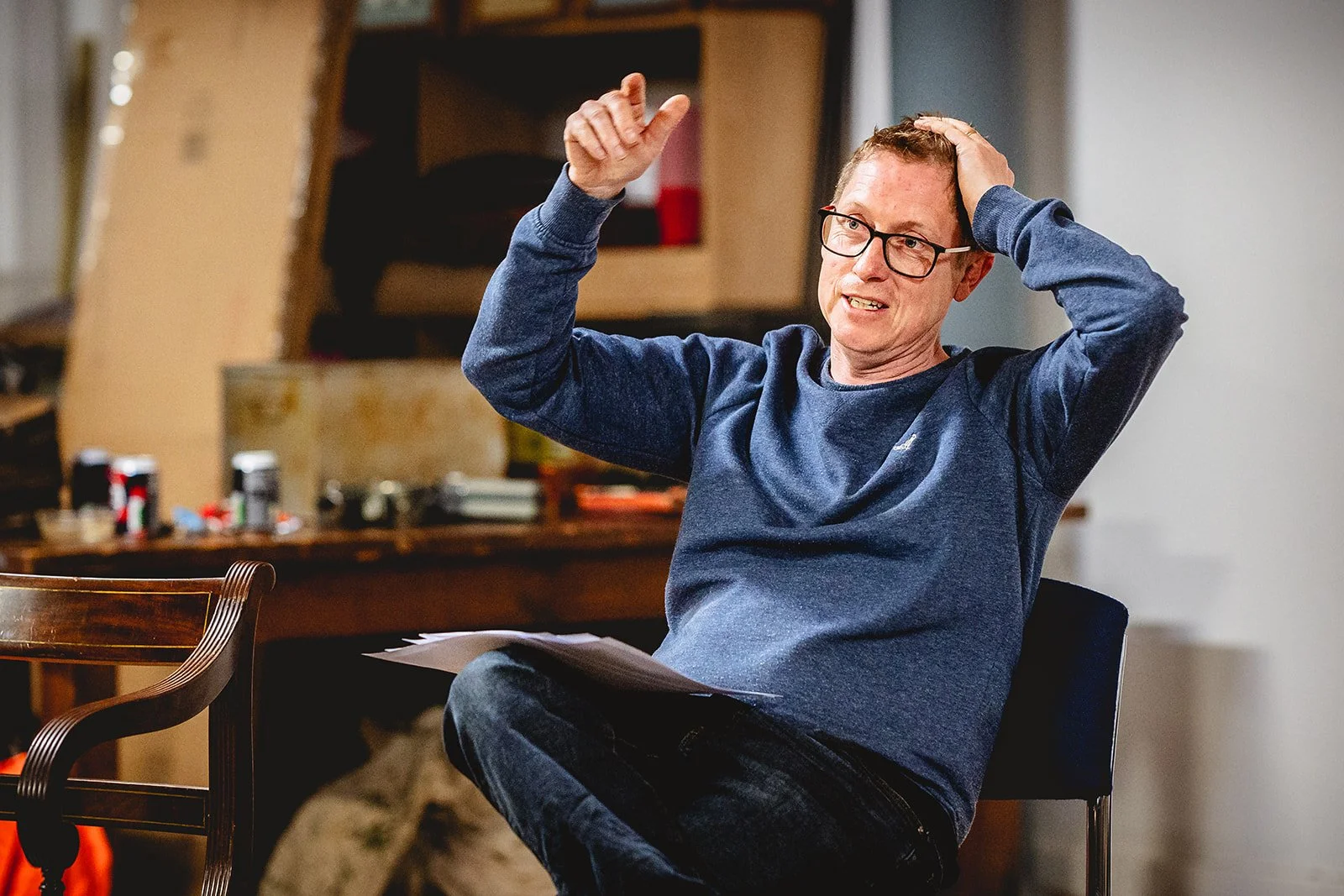The Void: Q&A
with Ryan Simons
We caught up with Writer, Director and Actor, Ryan Simons, about Thunder Road’s brand new sci-fi horror, The Void.
The Void is a chilling blend of sci-fi and horror. Where did the original idea come from, and how did it develop into a full stage production?
After the success of Shock Horror, we were looking for a way to push the boundaries of cinematic theatre even further, and sci-fi horror seemed the perfect genre for that.
We’re big fans of Alien, The Thing, and 2001: A Space Odyssey. When we placed our main character in deep space and put him on an infected ship, the horror took care of itself... we just had to figure out how on Earth we could stage it!
You've written, directed and also perform in the show. How do you balance those roles – and when do you stop tweaking the script?
Taking on the roles of writer, director and actor is terrifying, but there is method to the madness. It takes a lot of work to develop a theatrical production as ambitious as this, and a huge amount of time. By taking on all three roles, and Alex taking on the roles of producer and actor, we can be at the heart of every creative decision as the play evolves with the audience experience.
We never stop tweaking. Horror is for the audience, finding ways to tweak the scares and enhance the dread is what we love about it.
What can you tell us about Blair, and what drew you to playing that role?
Blair is a mystery. He’s a brilliant scientist, who’s been isolated by the oppressive Corporation that has a strangle hold over him. That’s made him volatile, unpredictable and incredibly human. So many of us now, are isolated in an online world run by big business, but at what cost? That’s what I find so interesting about him - is he a bad person or has he been pushed to do a bad thing?
The Void features an AI presence aboard the Odyssey. What drew you to exploring AI in this story, and do you think it reflects any real-world fears about where technology is heading?
I grew up fascinated with AI characters in film, Max in Flight of the Navigator, HAL in Space Odyssey. Arnie in Terminator, I love the way our hopes and fears about technology manifest in these roles.
NOVA in The Void represents our complicated relationship with this tech – we expect it to serve us, but also to look after us in times of need.
In the creative industry, many view AI as a threat, but I see it as an opportunity. I think it's a tool we can harness to enhance our creative output, but more importantly, I believe AI-generated content will quickly flood and saturate the market. I think that saturation will motivate humans to seek out live content - to connect with authentic human creativity. Theatres will benefit enormously from that shift, and I think we’ll all be better off sharing more real-life experiences together.
Sci-fi horror is often associated with film – Alien, The Thing – but you've brought it to life on stage. What makes theatre a powerful medium for this genre?
Theatre actually has advantages that film can't match for this genre. In a cinema, you're watching horror happen to other people. In theatre, you're trapped in the same space as the characters - there's no escape, no pause button.
The audience becomes another crew member aboard the Odyssey. When NOVA speaks, her voice fills the same air the audience breathes. When Flint starts questioning reality, the audience questions it too. Theatre's immediacy and intimacy makes the horror more real.
Photo by Andrew Billington
If you were stranded on a failing spaceship with one film, one album and one snack - what are you taking and why?
If I'm on a failing spaceship, I'd want to kick back and relax before I burnt up in space. My film would be The Graduate, makes me laugh and it’s beautiful. The album would be Vehicles & Animals by Athlete, not a bad song on that. The snack would be a Greggs’ sausage roll, lovely.




